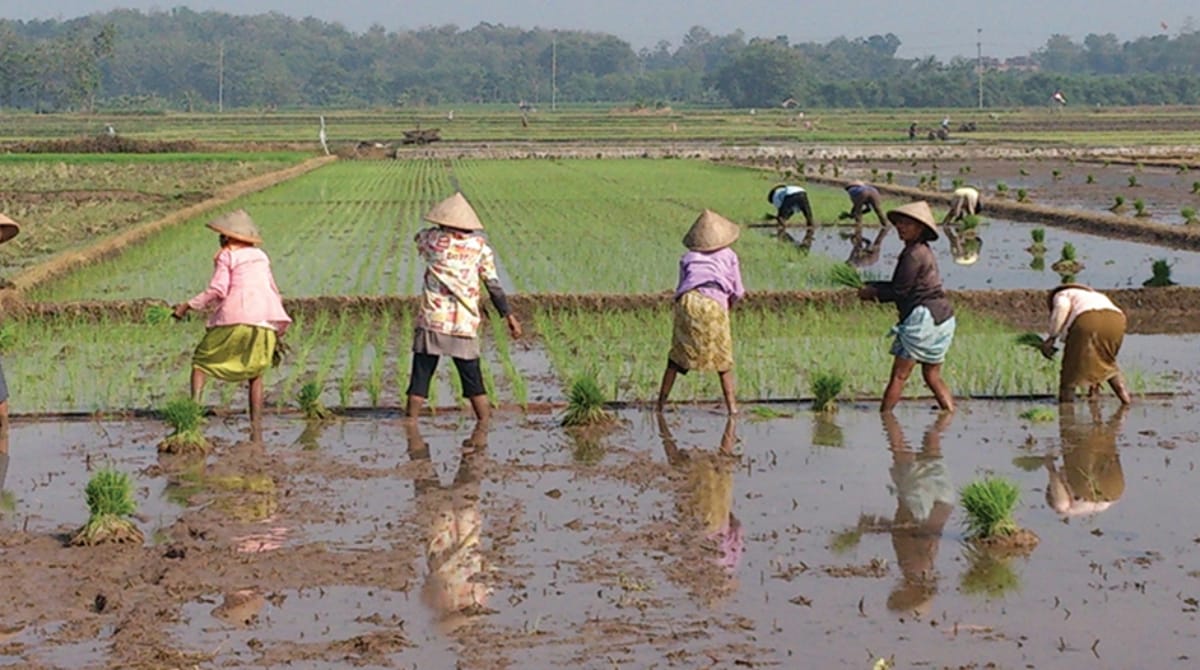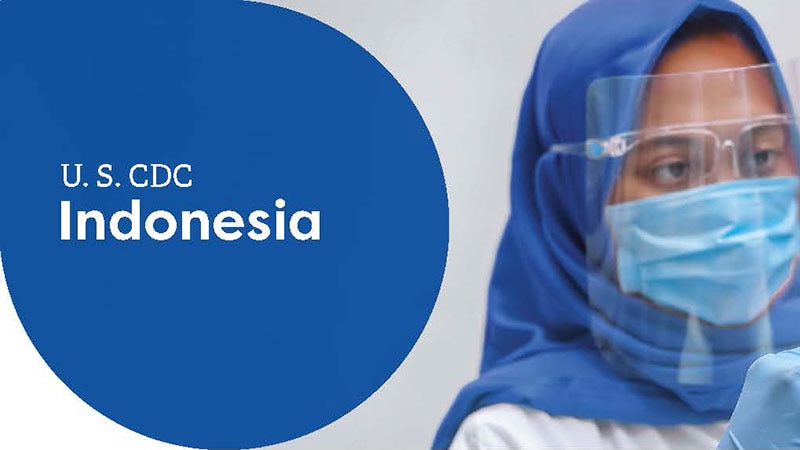At a glance
CDC has collaborated with the Government of Indonesia for more than 50 years to strengthen laboratory networks, disease surveillance, workforce development, public health emergency response, and public health program delivery. These efforts have helped improve capacity for control of emerging infectious diseases, vaccine-preventable diseases, influenzas, arboviruses, COVID-19, and other public health needs.

Overview

CDC’s global health security efforts in Indonesia help improve the country’s ability to prevent, detect, and respond to infectious disease outbreaks. It also helps to improve the health of communities through stronger public health systems. CDC collaborates with the Government of Indonesia, including the Ministry of Health (MOH), the Ministry of Agriculture, and the Ministry of Environment and Forestry, and other partners. These partnerships work to provide expertise and support across many public health topics.
By providing support across the topics, CDC helps Indonesia build core public health capacities in:
- Disease surveillance
- Laboratory systems
- Workforce development
- Public health emergency management
- Program delivery
The Government of Indonesia applies these capacities to lower the risk for specific diseases and to build public health systems to address more general health priorities.
Infectious diseases surveillance and laboratory systems
Strategic focus
CDC works with Indonesia to help build surveillance and laboratory capacity to prevent, detect, and respond to infectious disease threats. This helps improve the health of communities and reduces the chances of the outbreaks becoming epidemics that could affect global populations. Some of the specific diseases this work supports includes influenza, anthrax, dengue, malaria, rotavirus, polio, measles, rubella, and more.
Key achievements
- Support the MOH to design and launch a new national public health laboratory system including 10,662 laboratories organized in 5 tiers of responsibility.
- Sustain and improve a national, frontline Early Warning, Alert, and Response System to enhance disease surveillance in communities.
Workforce development
Strategic focus
CDC supports Indonesia by empowering its workforce. The Field Epidemiology Training Program (FETP) provides training to epidemiologists to identify and contain outbreaks before they become epidemics. FETP participants develop the skills to gather critical data and turn it into evidence-based action. The Indonesia FETP includes:
- 2-year advanced training Master's program hosted at 7 universities.
- 9-month intermediate and 3-month frontline training programs for public health workers.
CDC also supports laboratory skills training programs to build capacities for the latest and most accessible methods to detect priority diseases. CDC also provides extended training opportunities to MOH staff on public health emergency response strategies.
Key achievements
- Five MOH staff participated in the CDC Public Health Emergency Management Fellowship Program. These graduates helped establish a Public Health Emergency Operations Center within the Indonesia Ministry of Health.
- More than 862 individuals graduated from the Indonesia FETP and are serving in public health leadership positions in Indonesia and other countries in the region.
- CDC in collaboration with Indonesian Epidemiologist Association supporting the capacity building of surveillance in 5 provinces, Lampung South East Sulawesi, Central Sulawesi, Gorontalo and South East Nusa Tenggara. On the job training has been provided to more than 300 surveillance officers at the health center, district and province level.
- CDC in collaboration with Center for Health Policy and Management, Gadjah Mada University, has developed Ministry of Health accredited training curricula for early warning alert and response system for district officer. The training curricula has been used by Ministry of Health Training Centers to train surveillance officer around the country.
Vaccine-preventable diseases
Strategic focus
CDC supports the Government of Indonesia to strengthen country-wide vaccine-preventable disease detection, surveillance, outbreak response, and vaccine delivery. This work helps reduce the risk of vaccine preventable disease burden in Indonesia. It also helps reduce the risk of travelers carrying diseases to other countries. The goals of CDC support to Indonesia include:
- Maintaining a polio-free status.
- Eliminating measles and rubella.
- Expanding access to vaccines the Government of Indonesia recently introduced including vaccines for human papillomavirus, Japanese encephalitis, rotavirus, pneumococcal disease, and influenza.
- Improving routine immunization coverage across the country.
Influenza
Strategic focus
CDC supports the Ministry of Health to strengthen capacities to prevent, detect, and response to influenza at the national, provincial and district levels. The four main components of this program include initiatives to:
- Strengthen the National Influenza Surveillance System to include influenza testing laboratories.
- Improve data collection, integration, and data quality management for influenza.
- Improve influenza pandemic preparedness and response.
- Generate evidence to increase the seasonal influenza vaccination coverage for healthcare workers.
With strategic collaboration, CDC's work aligns with national strategies and MOH plans. CDC's work focuses on capacity development to ensure the sustainability of influenza program in Indonesia.
Key achievements
- Support the MOH in strengthening the national influenza surveillance system including improvements to influenza testing in selected laboratories.
- Enhanced cross-sector collaboration for integrated surveillance system on Avian Flu in a prioritized province.
- Modernization of the national influenza data collection system and capacity development on quality data management.
- Establishment of the influenza surveillance system in 14 Points of Entry.

